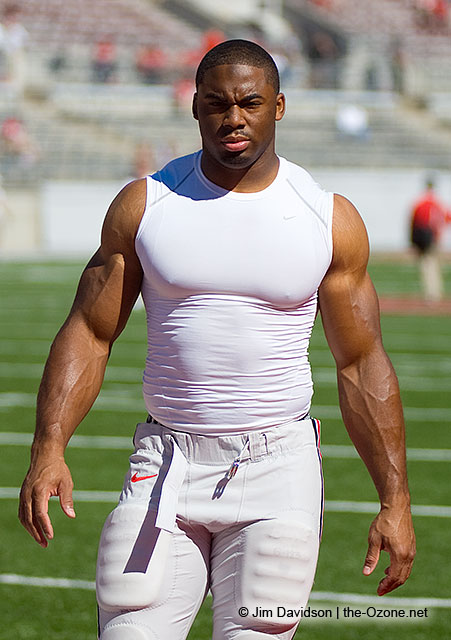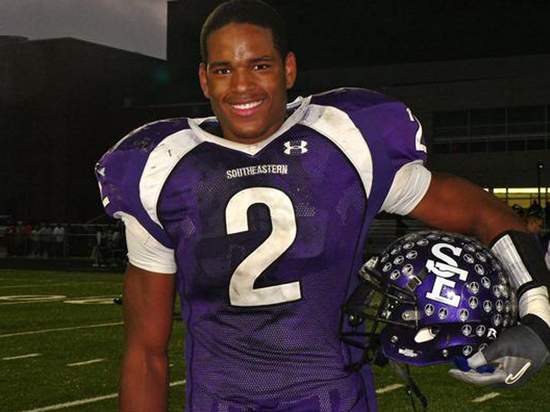What has floyd done!!!!!!!!!!
The NFL has proposed to the players' association the plan to use blood tests for HGH, according to a report in The Washington Post.
The union, however, remains opposed to the idea of the players undergoing blood testing.
The latest overture comes in light of Tuesday's report that an athlete was banned after testing positive for HGH. Terry Newton, a British rugby league player, became the first athlete to be suspended for using HGH. He acknowledged using the substance, and was banned for two years by the United Kingdom Anti-Doping authority.
HGH is banned in the major North American sports leagues, including the NFL and Major League Baseball, but the hurdle always has been the belief there was no effective, widely available test for the substance.
Major League Baseball also is keen on using blood tests for HGH, and plans to go ahead with such testing in the minor leagues later this season, according to a report in The New York Times.
"Our position is that HGH blood testing has advanced to the point where we are taking steps to incorporate it into our program," Greg Aiello, NFL senior vice president of public relations, told The Post.
The players' union, which would have to approve any proposal before blood testing can be done, rebuffed the NFL's plan, part of the ongoing labor talks, according to The Post.
"At this point, there's no reason to believe that blood-testing for NFL players will or should be implemented," George Atallah, union assistant executive director of external affairs, told The Post. "We should instead focus on preserving the drug-testing policy that we have in place."
The two sides can change the terms of the collectively bargained steroids-testing program without a new labor contract.
"All of us who have helped develop a test wouldn't put it in place if it wasn't forensically sound and reliable," U.S. Anti-Doping Agency chief executive Travis Tygart said, according to the New York Daily News. "Particularly in [Newton's] case, it's proof positive the test works."
Information from The Associated Press was used in this report.
The NFL has proposed to the players' association the plan to use blood tests for HGH, according to a report in The Washington Post.
The union, however, remains opposed to the idea of the players undergoing blood testing.
The latest overture comes in light of Tuesday's report that an athlete was banned after testing positive for HGH. Terry Newton, a British rugby league player, became the first athlete to be suspended for using HGH. He acknowledged using the substance, and was banned for two years by the United Kingdom Anti-Doping authority.
HGH is banned in the major North American sports leagues, including the NFL and Major League Baseball, but the hurdle always has been the belief there was no effective, widely available test for the substance.
Major League Baseball also is keen on using blood tests for HGH, and plans to go ahead with such testing in the minor leagues later this season, according to a report in The New York Times.
"Our position is that HGH blood testing has advanced to the point where we are taking steps to incorporate it into our program," Greg Aiello, NFL senior vice president of public relations, told The Post.
The players' union, which would have to approve any proposal before blood testing can be done, rebuffed the NFL's plan, part of the ongoing labor talks, according to The Post.
"At this point, there's no reason to believe that blood-testing for NFL players will or should be implemented," George Atallah, union assistant executive director of external affairs, told The Post. "We should instead focus on preserving the drug-testing policy that we have in place."
The two sides can change the terms of the collectively bargained steroids-testing program without a new labor contract.
"All of us who have helped develop a test wouldn't put it in place if it wasn't forensically sound and reliable," U.S. Anti-Doping Agency chief executive Travis Tygart said, according to the New York Daily News. "Particularly in [Newton's] case, it's proof positive the test works."
Information from The Associated Press was used in this report.







 Vernon Gholston can take all the HGH he wants he hasn't done **** in the NFL.
Vernon Gholston can take all the HGH he wants he hasn't done **** in the NFL.

Comment